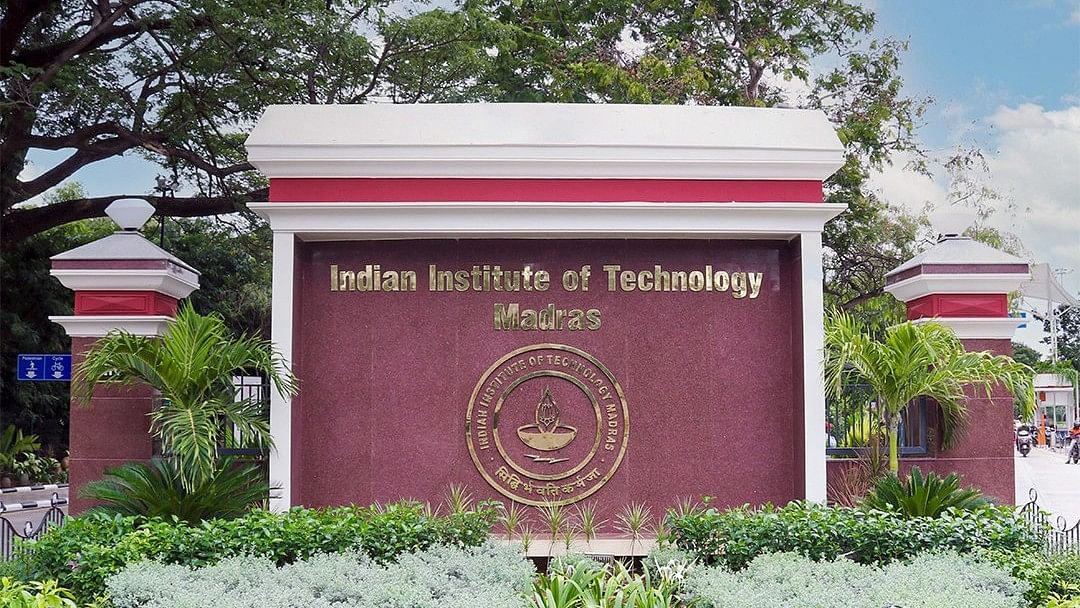
A plaque of IIT-Madras.
Credit: X/@iitmadras
Chennai: A study by the prestigious Indian Institute of Technology Madras (IIT-M) has suggested that fostering an environment that channels the creative and expressive sides of employees could be a successful approach to running a volatile business.
Findings of the study done by Prof. V Vijayalakshmi and her doctoral student Janani M. from the Department of Management Studies, IIT-M, have been published in the Journal of Organizational Change Management.
Many large corporate companies such as Boston Consulting Group, Xerox Parc, Siemens, and IBM have already implemented the strength of art-based therapies to achieve their management goals. This research advocates applying expressive arts techniques in the workplace to benefit employees, and consequently refine overall corporate culture.
Vijayalakshmi said arts have a significant history in many cultures and have the potential to shape thoughts, feelings, and behaviours.
“Compared to traditional training methods, experiential and artistic methods induce a positive mood, encourage creativity and innovation, and offer metaphorical and improvisational advantages to expand one’s thought and behaviour in the workplace,” she added.
Generational changes, technological advancements and a constant need to adapt to the evolving world require workforces to alter ways to maximise employee potential and keep them fulfilled, the research said.
The researchers from IIT Madras also discussed a concept known as ‘Workforce Agility’, which helps employees deal with organisational challenges with a more constructive approach, rather than being resistant to them. This can help businesses react to the opportunities and dangers that come with operating in a competitive business environment.
The individual employee is rarely given priority in conventional efforts to increase workforce agility. To improve workforce agility, individuals' characteristics have received very little attention up until now. However, preserving work culture is dependent on preserving the creative needs of employees, the researchers suggest.
Janani said the study can be advantageous for multiple stakeholders as it can help firms move from a traditional training-based system to an experiential fashion. “It may generate internal and external dialogues, new relationships, and thought patterns among employees, which can be leveraged toward a cordial, considerate, and collaborative work culture,” she added.
By dissecting the psyche of an employee, this research highlights the crucial role of innate joy as an enabler for employees to perform better in their jobs.
“Engaging with the arts provides a safe psychological space for exploring an alternate reality. Such an exploration can help employees engage in proactive behaviours such as anticipating future changes and challenges and consequent problem-solving,” Vijayalakshmi added.